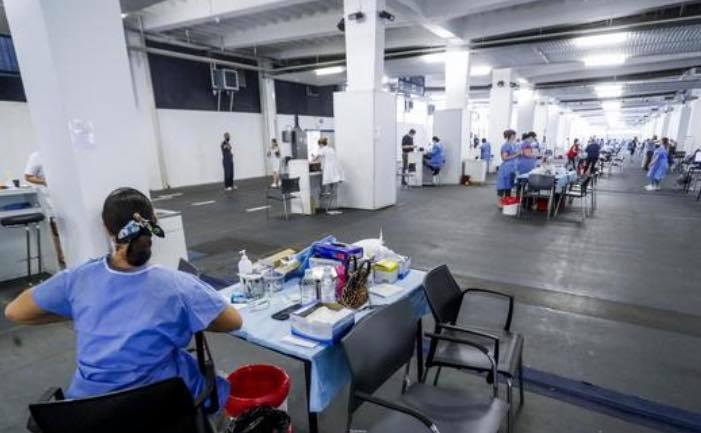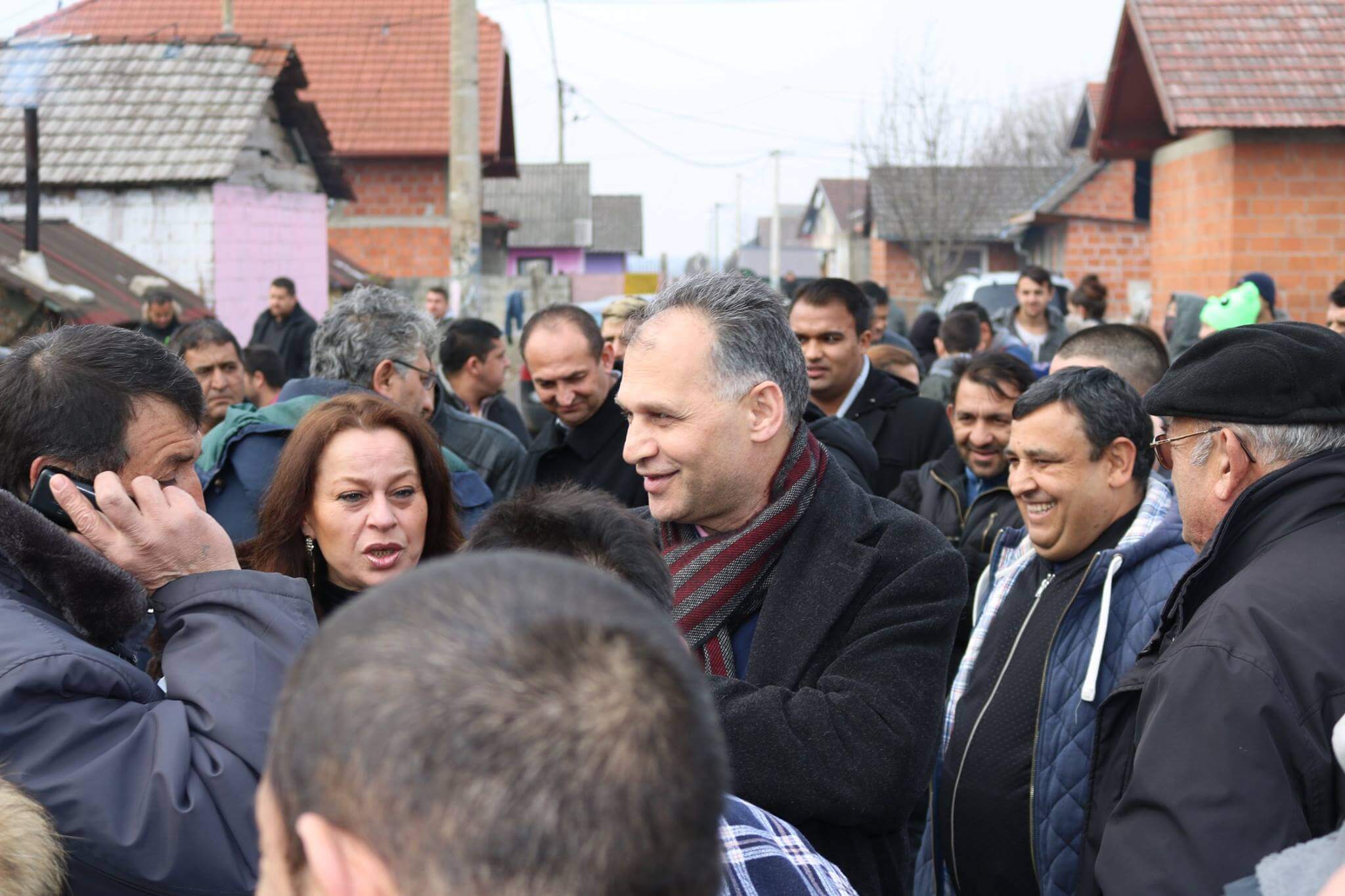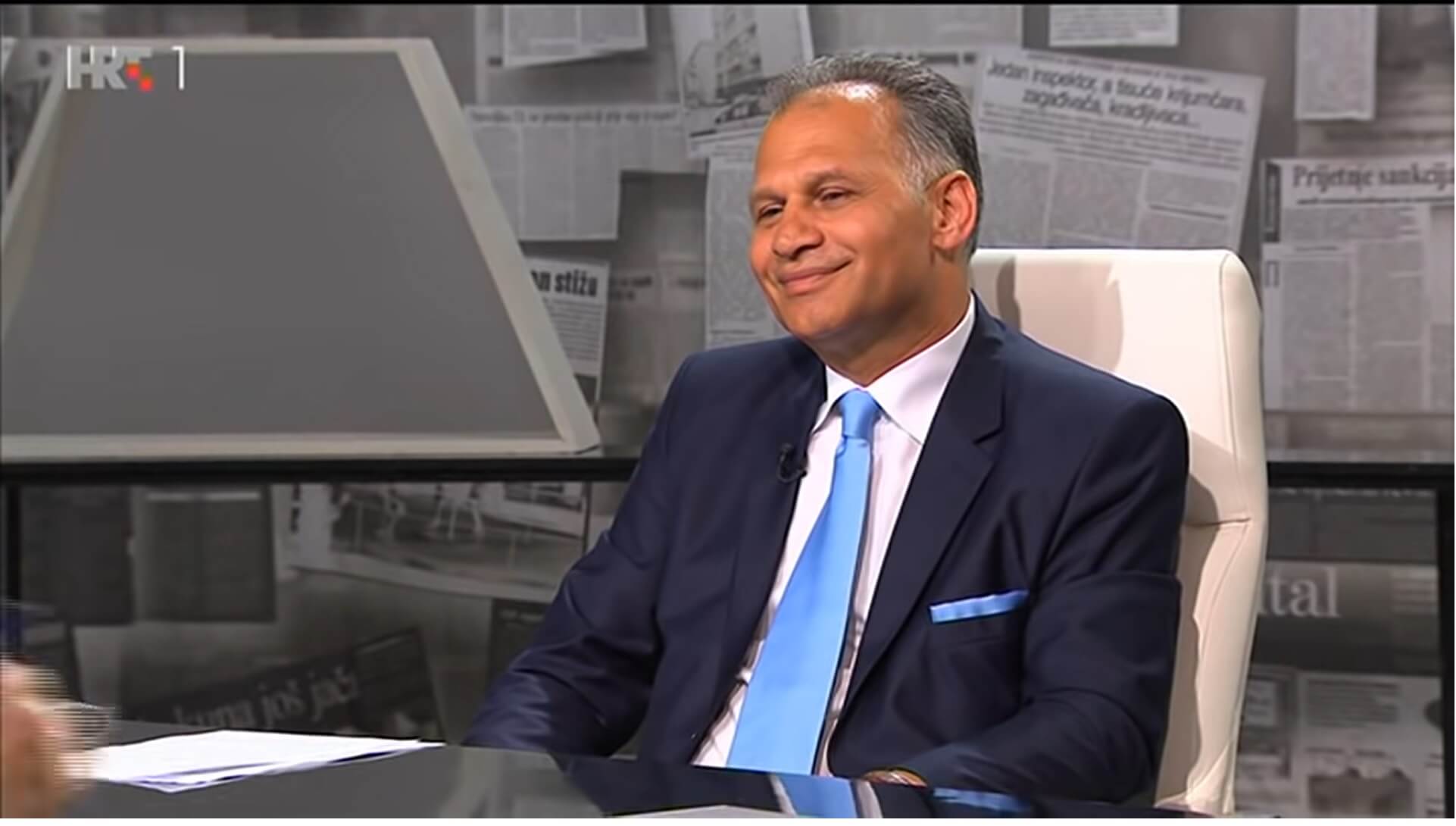Roma in the Homeland War: More Research on Defending Croatia Needed
August 5, 2021 - When talking about the fight for Croatian independence, the public often tends to forget about the contributions of minorities such as Roma in the Homeland War. TCN reporter Ivor Kruljac reminds us of a 2019 book that researched Roma participation in defending Croatia, which is a great starting point for further research today.
Croatia is marking the 26th Anniversary of Operation Storm, a military action that, on August 5, 1995, marked the liberation of occupied territory (apart from Eastern Slavonia, which was returned to Croatia later on during peaceful reintegration).
Victory Day is filled with pride, but for some, there is a shade of bitterness as a result of the questionable treatment of civilians and prisoners of war that to this day continues to divide the opinion of the Croatian public and remains a topic of numerous historical debates.
As noticed by the Youth Initiative for Human Rights (YIHR), things changed significantly in 2020. This came as a result of moves made by Croatian politicians, not only with words but also by their honouring of Serbian civilian victims in Varivode and Gruber.
''Last year's anniversary was marked by changes in the official policy towards Operation Storm (Oluja), known in Croatia as Victory Day (Dan Pobjede) and Homeland Thanksgiving Day (Dan Domovinske Zahvalnosti). August 2020 saw the public space filled with messages about reconciliation, dialogue, the importance of facts, condolences for war crime victims, and appeals for a conversation about different views on Operation Storm in both Croatia and Serbia,'' said YIHR.
With 2020 evoking feelings of sympathy for all victims of the Homeland War, a significant step was also made back in 2019 to recognise that not only ethnic Croats fought for the freedom and independence of their country.
“We defended Croatia Too: Roma People in the Homeland War“, is a monography by Borna Marinić which was presented in 2019. It was the first publication to gather info on the contribution made in the war by the often discriminated against and socially isolated minority in Croatia. The presentation was held in the "Zvonimir Home" of the Croatian military in Zagreb. The publication was the first to really delve into the contribution of Roma in the Homeland War.
The promotion gathered many VIP attendees of political and military Croatian authorities at the time. Marinić, a historian and the editor of the website ''Dogodilo se na Današnji Dan'' (It Happened on This Day), pointed out that not a lot is known about the actions of the Roma in the Homeland War, and this lack of documentation was the biggest problem he had to tackle when it came to verbal storytelling from witnesses.
''I visited Roma veterans and their commanders as well as other relevant people across Croatia, recording their statements and testimonies about the Homeland War,'' said Marinić. His research saw more than 50 people interviewed, but the total count of Roma people who participated in the war still remains unknown.
Dr. Martin Previšić pointed out while reviewing the book that it doesn't provide readers with a linear story of the war's history, but rather an authentic view on the hell of wartime and the solidarity which trumped very many differences.
''Vukovar, Baranja, Pakrac, Novska, and Karlovac were places in which Croatia was defended, but they were also places where Roma people gave their tribute to that same defense,'' said Previšić.
Veljko Kajtazi, a member of the Croatian Parliament, elected as a representative of the Roma community, attended the representation, delighted to see that this important but unexplored subject was finally being tackled by a researcher in the first-ever book published on the topic. He pointed out, however, that this book cannot be viewed as an encyclopedia as it didn't record the experiences of all Roma people, nor does it have all of the information from all fronts, but it is a terrific base for further research.
''I'm grateful to my fellow Roma people who shared their stories and whose faith is the cornerstone of this book. I felt the obligation for Roma people to come forward and present themselves in a different light. Roma people, in large numbers, defended Croatia and gave their contribution to the defense in key moments,'' concluded Kajtazi.
Kajtazi talked about the need for Roma people to begin presenting themselves in a different light and stated that there are definitely numerous issues caused by stereotypes that Roma people are involved in crime and as such can't be trusted.
As TCN previously wrote, The Human Rights in Croatia 2020 Overview report by Human Rights House Zagreb noticed how Roma people in Croatia still face very many obstacles in achieving their rights, which include employment, access to services, and adequate living standards, and there is still segregation in the Croatian education system too.
Additionally, the global issue of COVID-19 brought new problems for Roma people in regard to vaccination against COVID-19, a topic both Kajtazi and the Croatian Public Health Institute (HZJZ) spoke about for TCN.
Roma people helped Croatia during the darkest of its days as a new and young country. Respecting and working on actively including Roma people in our society as equals is the very least Croatia can do in return.
Learn more about Croatian politics and history from the 1990s on our TC page.
For more about science in Croatia, follow TCN's dedicated page.
Croatian Public Health Institute on Vaccinating Roma People
July 23, 2021 - The response by the Croatian Institute of Public Health on vaccinating Roma people arrived few hours after TCN published the first article on the subject. TCN, true to its words, will now publish the response as promised to our readers.
A recent TCN report about vaccinating Roma people people saw the Croatian Institute of Public Health (HZJZ) send the answers that didn't make it out before the publishing of the article. They apologised, stating that it all might have come down to a mistake in communication, suggesting that their reply might have been originally sent to the wrong address (after sending, forwarding, and lots of e-mail addresses involved, one can understand that the answers could have been sent to the wrong email).
Either way, it's fantastic to receive some new info on the matter.
A quick reminder, Veljko Kajtazi, a member of the Croatian parliament, elected as a representative of the Roma community, told TCN that official research of the percentage of vaccinated Roma people hasn't been conducted, but added that he frequently goes ''to out into the field'' and can see that the situation isn't with vaccinating Roma people isn't good.
''If 45% of the Croatian population is vaccinated, I can say that Roma people are a very small percentage of that number,'' commented Kajtazi. He also recognised fake news as the cause of lowered interest in the vaccine.
''Last year, 80% of Roma people wanted to take the vaccine, but today, they're scared and believe in various conspiracy theories. People aren't informed, and social media spreads so much disinformation,'' stated Kajtazi.
 © Cijepljenje / Vakcinacija
© Cijepljenje / Vakcinacija
Ethnicity is not a criterion for vaccination
HZJZ responded that they also hadn't conducted any research about attitudes towards COVID-19 vaccines among the country's Roma people. They also haven't come up with any statistics for the percentage of vaccinated Roma people.
''During the vaccination process, no differences are made in regards to ethnicity as the vaccination plan doesn't see ethnicity as a criterion for who can take the vaccine and who can't. This is the same with Roma people and for any other ethnic minority,'' explained HZJZ. They added how they asked each of the county branches of the Public health Institute about vaccinating Roma people and the field information confirmed that vaccination is being carried out in accordance with the current vaccination plan.
''So far, there has been no analysis of the number of vaccinated people based on ethnicity at the state level, and local institutes don't keep a record of vaccinated people based on their ethnicity. This doesn't exclude the possibility of retrograde analysis in accordance with available data,'' pointed out HZJZ.
Regarding the isolation of Roma people, HZJZ said that local institutions arranged open points for the vaccination for all Croatian citizens, and they suggest that they had arrived at this point due to the partially inadequate organisation and a lack of financial conditions, not to mention a lack of human resources for vaccination in Roma villages.
However, the trouble of the isolation of Roma villages does seem to be something HZJZ recognises as a challenge in vaccine availability.
''With the goal of accomplishing a higher vaccination rate among the Roma community, we think an optimal solution would be to organise transport for the Roma community to the open vaccination points. But, that isn't in the domain of HZJZ, so we'd like to invite institutions that can help in organising transport to contact their nearest Institute for Public Health. Simply put, these institutes will organise vaccination wherever necessary, but to organise for citizens to come to the vaccination location by some special conditions, the organisational assistance of other contributors is needed,'' they concluded from HZJZ.
With Kajtazi previously stating for TCN that he is regularly in contact with the authorities when it comes to ensuring vaccines, as well as for real scientific information on their safety and efficiency, the organisational issues of transport to the vaccination points could be resolved.

Roma Representative in Croatian Parliament, Veljko Kajtazi, visiting Roma people in Varaždin © Savez Roma u RH "KALI SARA"
With increasing numbers of new cases of infection being noted, the situation may not be as dramatic for the moment but could escalate quickly if Croats fail to recognise the importance of vaccination, not just because of the risk of ending the tourist season early but also due to the potential of another heavy blow to the Croatian healthcare system.
At the time of writing this article, the latest report noted 179 new cases, one death, and 98 recoveries. Additionally, health officials had administered nearly three million vaccine doses. Thus, 1.604 million people have received at least one dose of vaccine against COVID-19, and 1,401,029 have fully been vaccinated (1,360,822 have been double-jabbed plus 40,207 who have received the single-dose Jannsen vaccine), and this makes up 41.614% of the Croatian adult population.
Learn more about travelling to Croatia during the COVID-19 pandemic on our TC page.
For more about COVID-19 in Croatia, follow TCN's dedicated page.
Roma People COVID-19 Vaccination in Croatia: Will Crushed by Disinformation
July 22, 2021 - With the overall struggle to get Croatians to take the coronavirus vaccine, it is often overlooked regarding Roma people COVID-19 vaccination in Croatia.
Despite coronavirus infections being low at the moment, the situation is tense. On July 5, as TCN reported, only 35% of the Croatian population was vaccinated as the Delta strain spreads globally and in the country.
"Unfortunately, we aren't satisfied with the percentage of vaccinated people we hoped to have. We all wanted to vaccinate more than 50 percent of the total Croatian population during June, but sadly our numbers in that regard are much lower. Only about 35 percent of the total Croatian population has been vaccinated, which isn't enough for them to be calm and to be able to live according to the old normal,'' said epidemiologist Dijana Mayer back then. This was punished with the Croatian coast no longer being in the green, and without bigger vaccination interest, things can turn red. As TCN wrote, there are 5-6 Positive Cases at Split Airport every day, and new measures are introduced to British tourists as the Delta strain is booming there (but in a less fatal manner because of vaccines). Stricter measures, in general, can be excepted by the end of the month in Croatia too.
Fortunately, things got better in July. As reported on Wednesday, „Croatia administered nearly three million vaccine doses. Thus, 1.6 million people have received at least one dose of vaccines against COVID-19, and 1,388,674 have fully been vaccinated (1,349,652 have been double-jabbed plus 39,022 who have received a single-dose Jannsen vaccine), and this makes up 41.24% of the adult population“.
But, disinformation about COVID-19 vaccines is vividly spread (just as disinformation about COVID-19), leaving Croatian fact-checking site Faktograf knee-deep in debunking work. Many Croatians sadly believe the fake news of the anti-vaxxers, and the situation culminated to the point where the Croatian officials (as officials in many other EU countries that also struggle with anti-vax propaganda) seriously discuss obligatory vaccination. Will it happen? Some politicians are up for it, others no, but overall, the situation is uncertain as the fourth infection wave approaches, and the season could potentially be in jeopardy in mid-August, as 24 Sata writes.

COVID-19 vaccine © Pixabay
In summary, there are currently more vaccines in Croatia than there are people interested in. It's hard to believe how things progressed from the start of the year when we witnessed a delay in vaccine shipments, outrage by the public when people such as Zagreb University Rector Damir Boras received the vaccine ahead of time and schedule. From the malfunctioning Cijepi se (Vaccinate yourself) website where you had to register for an appointment (which took forever to get) to a family doctor being able to sign you up, all the way to be able to take a shot without an appointment today, vaccines truly became accessible for everyone. There were even buses bringing vaccines and performing vaccinations in remote villages. So vaccines are for everyone to take, but is it really so?
Nothing in the world is perfect, and neither is Croatia. From time to time, we can see that some groups in Croatian society do get discriminated against or suffer negative stereotypes. For example, with significant progress in accepting the LGBTQ community, sadly homophobic attacks still happen. The tensions with the Serbian minority vary from the day-to-day political agenda, but it is safe to say no one has it worse than the Roma people in Croatia.
As TCN previously wrote, following the 2020 report by Human Rights House in Zagreb, Roma people in Croatia are still facing many obstacles in achieving their rights, which include employment, access to services, and adequate living standards, and there is still segregation in the education system too. Either perceived as thieves, criminals, beggars or completely ignored in Croatia, the question of how many Roma people in Croatia received the vaccine and how many Roma people want the vaccine in the first place, can't be left aside, as it shows how much the vaccine rollout truly is fair for every citizen in the country.
Disinformation crippled 80% of those willing to get the vaccine
Veljko Kajtazi, a member of the Croatian parliament, elected as a representative of the Roma community, says that official research of percentage of vaccinated Roma people hasn't been conducted, but he frequently goes „to the field“, and sees that the situation isn't good.
„If 45% of the Croatian population is vaccinated, I can say that Roma people are a very small percentage of that number“, commented Kajtazi, then on a relevant number of vaccinated people.
He supports the talk of obligatory vaccines and finds disinformation and fake news regarding vaccines to be the cause of low interest.
 Veljko Kajtazi, screenshot / Hrvatska radiotelevizija
Veljko Kajtazi, screenshot / Hrvatska radiotelevizija
„Roma people have a very social culture, love gatherings, and live in big families. When the pandemic started, I cooperated with authorities in ensuring that social distancing measures are respected in Roma settlements and that we educate people on the dangers of coronavirus“, recalled Kajtazi.
While Roma people can be found living anywhere, the majority is often ghettoized. An example is in Zagreb, where the Kozari Bok neighborhood on the east side of the city is famous for its big Roma population. When looking outside of the capital city, there are many Roma villages and settlements which count more people than other Croatian villages.
One such place is Piškorovec in Međimurje, which the Lupiga news site referred to as „the biggest Croatian ghetto“. Their article detailed both living in Piškorovec and tensions with the nearby town of Čakovec underlining incidents and division between Roma and Croatians (as Roma People are often perceived as thieves or beggars).
„Last year 80% of Roma people wanted to take the vaccine, but today, they are scared and believe various conspiracy theories. People are not informed, and social networks spread so much disinformation“, Kajtazi pictured how wishing for a vaccine turned sideways.
In the end, he added that he is regularly in contact with the government and institutions to provide information on vaccines to the community. Katja also hopes the vaccine buses will come to Roma villages too.
Questions for HZJZ
The lack of information, geographical isolation, and the overall achievement of social rights (such as health insurance) like other Croatian citizens that the Human Rights House in Zagreb expressed in their report left a lot of open questions regarding Roma people vaccination. Particularly, are there any statistics on how many people vaccinated that the health officials might have, what is the mood towards vaccines in Roma communities in their view, and can buses come to isolated areas to vaccinate Roma people? The inquiry was sent to the Health Ministry and to the Croatian Public Health Institute (HZJZ). Health Ministry very quickly forwarded the inquiry to the Croatian Public Health Institute (HZJZ) as these questions are part of their domain. The health ministry even forwarded the questions directly to the HZJZ headmaster Krunoslav Capak himself and other close associates on e-mail addresses not visible on the HZJZ website. But, HZJZ hasn't responded yet. Whether I tried to remind them and ask when can they answer via e-mail or phone calls, none left a response (although a phone call with HZJZ PR service confirmed there are experts in HZJZ that deal with the health of vulnerable social groups, which includes Roma People).
When the answer that can be expected for the moment remains unknown, but TCN will publish HZJZ's response when we receive it.
In the meantime, as we can see, despite vaccine skepticism being strong, there is nevertheless a slow but steady daily rise of vaccinated people in Croatia.
Let's hope for the sake of public health that disinformation and fake news that turn people away from the vaccines will lower its influence on all the cultural groups and identities you can find in Croatia.
Editor's note: HZJZ response
Learn more about travelling to Croatia during the COVID-19 pandemic on our TC page.
For more about COVID-19 in Croatia, follow TCN's dedicated page.
No Joint Ceremony to Pay Tribute to Jasenovac Victims
ZAGREB, 20 April, 2021 - There will be no joint commemoration for victims of the World War II concentration camp Jasenovac on Thursday, representatives of the victims will lay wreaths separately from the state leadership while President Zoran Milanović will do so separately from the prime minister and parliament speaker.
President Milanović's spokesman Nikola Jelić confirmed to Hina that Milanović and his delegation will lay wreaths at the Stone Flower monument at Jasenovac at 11 a.m. on Thursday.
Office of the President did not receive reply from gov't, parliament
"President Zoran Milanović and his delegation will pay tribute to the Jasenovac victims on 22 April, at 11 a.m., as agreed with the organiser, the Public Institution Jasenovac Memorial Area," Jelić said.
He added that the Office of the President had not received a reply from the government or the parliament to its invitation to pay tribute to the Jasenovac victims together.
"As early as last Friday the President of the Republic proposed to the Prime Minister and the Parliament Speaker that they all pay tribute to the Jasenovac victims together, but we have not received any reply," Jelić said.
Prime Minister Andrej Plenković said today that a government delegation would lay a wreath at Jasenovac at 9 a.m., again dismissing the possibility of paying tribute together with Milanović, noting that "there is no reason for us to put on an act."
"As regards any joint laying of wreaths or flowers, I said yesterday.... there will be no putting on an act," he told reporters during a visit to Rijeka.
Plenković: We were not the ones to start with insults
"The President of the Republic or his staff are now launching an initiative for the Parliament Speaker and myself to lay a wreath with him in Jasenovac. We were not the ones to start with the 'animal farm', we were not the ones to start with insults or a number of other things that are most inappropriate, so there is no reason to put on an act, let that be clear to everyone," said Plenković.
He added that the organiser of the commemoration was the Jasenovac Memorial Area, not the government or anyone else, and that this year's commemoration would be held in line with epidemiological restrictions.
The government's delegation will arrive at 9 a.m. and the parliament's delegation at 10 a.m., he said.
"This has nothing to do with representatives of the victim ethnic groups. We met with them last week, we hold meetings regularly, we respect the victims and went to Jasenovac in the past four years as well. We will go this year again, next year, in 2023, 2024. This has to do with the protocol, but putting on an act is out of the question," he said.
Reporters asked Plenković if he should ignore his relationship with Milanović, regardless of how bad it may be, in situations such as commemorations, to which he said: "No, there's no need for that. In this case it is not envisaged and is out of the question."
Representatives of Serbs, Jews, Roma and antifascists to form separate delegation
The Serb National Council (SNV) said earlier in the day that representatives of ethnic groups that were victims of the Ustasha terror would have a separate, four-member delegation in Jasenovac.
SNV president Milorad Pupovac, the leader of the Coordinating Committee of the Jewish Communities of Croatia, Ognjen Kraus, Roma association "Kali Sara" representative Veljko Kajtazi, and the leader of the SABA association of antifascist fighters and antifascists, Franjo Habulin, will lay a joint wreath at the Stone Flower monument at noon on Thursday.
Kraus confirmed to Hina that this decision was made yesterday, after it became evident that there would be no joint delegation comprising top state officials.
"After we realised that there would be separate delegations, we decided on a separate delegation as well. As you can see, a single delegation does not depend on us. We cannot support the use of commemorations for political one-upmanship," said Kraus.
For more about politics in Croatia, follow TCN's dedicated page.


